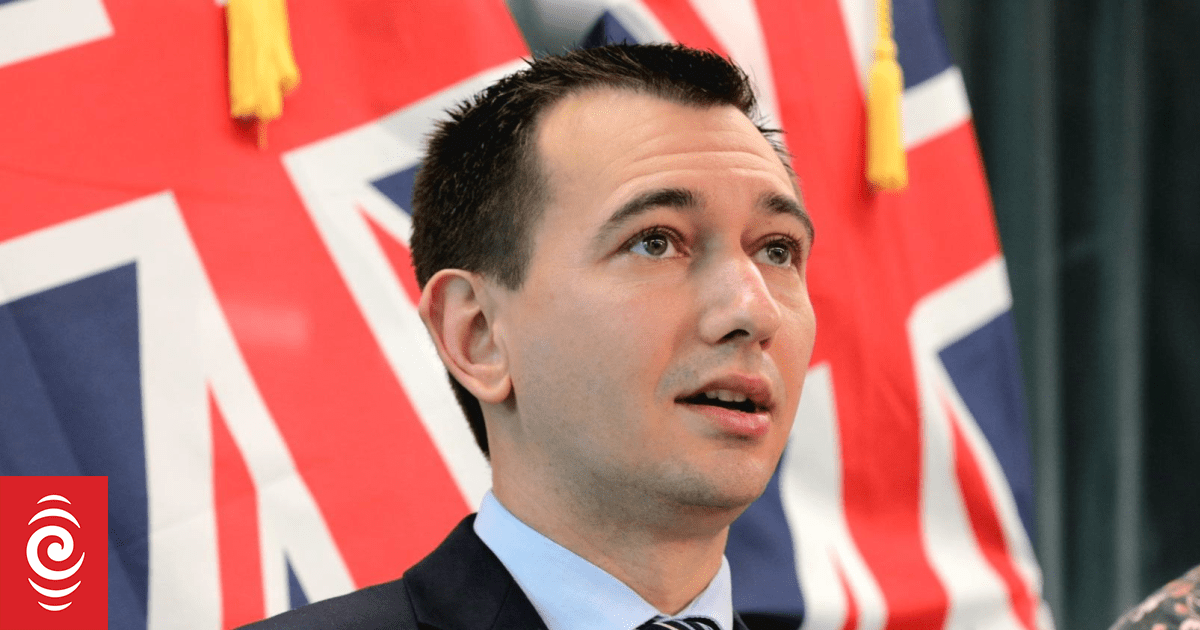Health Minister Simeon Brown announces extra 75,000 diagnostic procedures.
Photo: RNZ / Nick Monro
Health officials are expecting the measles outbreak to continue to grow as the confirmed case number rises to 10 nationwide, with thousands of close contacts identified.
Wellington College is now a location of interest, with several hundred close contacts identified there; as is Wellington Girls’ College, with dozens.
One confirmed case is linked to overseas travel and seven are linked to a “high-risk exposure event” on a Bluebridge Ferry on 3 October.
Public health officials are said to be working at pace to get in contact with anyone who had come into contact with the highly contagious viral disease.
“I’d say that we’re very concerned in terms of what’s taking place,” Health Minister Simeon Brown told Morning Report on Tuesday. “Our public health officials are working incredibly hard to stamp this out. That’s the focus that they have, is to contact trace every case and to do everything possible to stamp this out.
“The number of close contacts is increasing rapidly. I think it’s close to around 2000 now, and so that obviously puts significant pressure on our public health system.
“However, it’s critically important that we get on top of this because we had a large outbreak, I think, back in 2019, around 2000 cases, around a third of those cases were hospitalised. So it’s critically important that we do everything we can to stamp it out, and so that’s what the National Public Health Service is focused on.
“And of course, the number one thing that Kiwis can do to prevent themselves or their family members from getting measles is to get immunised.”
Contact tracing failed and vaccination was too slow to stop 2019’s measles epidemic ripping through South Auckland, a review found.
Brown said it was a concern having such a large time gap between the ferry exposure on 3 October and now, “but it also does rely on people coming forward when they have symptoms, reporting themselves and their symptoms through to Healthline or their GP”.
“So it’s critically important that if you have measles symptoms, that you report, you call Healthline or you contact your GP, so that that can assist our contact tracers to do their jobs as quickly as possible… It’s critically important people don’t ignore the symptoms.”
Measles was so infectious, it required an immunity rate of at least 95 percent in the community to prevent spread. Brown said we were presently at about 80 percent, and there was a huge promotional campaign being organised to fix that.
“Health New Zealand [is] working on delivering a National Measles Immunisation Week, which will be to partner with all immunisation providers up and down the country, GPs, pharmacy, Hauota Maori partners across the country to put a real focus and emphasis on immunisations. So there’s a big effort going into preparing for that at the moment. Obviously, there’ll be more information released shortly once that’s been established.
“But as I said earlier, immunisation is the number one thing that people can do to prevent themselves or a loved one from getting measles. And the measles vaccine is free for everybody, so it’s critically important that people take that opportunity.”
He said that included, at present, people in the country who would not normally be eligible, such as visitors.
Work contacting all the potentially exposed students in Wellington should be completed on Tuesday, he said, but more locations of interest will no doubt be uncovered so people should keep a lookout for those.
Sign up for Ngā Pitopito Kōrero, a daily newsletter curated by our editors and delivered straight to your inbox every weekday.

